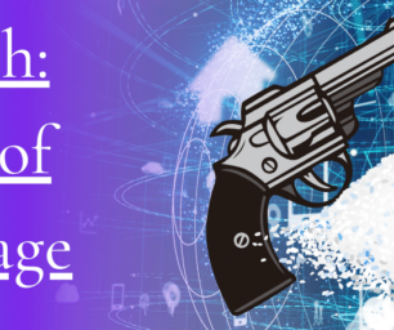Criminology, the interdisciplinary study of crime, criminals, and the criminal justice system, delves into the complex interplay of social, psychological, and environmental factors that contribute to criminal behavior. From understanding the root causes of crime to devising strategies for crime prevention and rehabilitation, criminology offers invaluable insights into one of society’s most pressing challenges. In this article, we embark on a journey through the realm of criminology, exploring its significance, methodologies, and key findings.
The Significance of Criminology: Unraveling the Mysteries of Crime
Crime is a multifaceted phenomenon that impacts individuals, communities, and societies at large. Criminology seeks to unravel the underlying causes and consequences of crime, shedding light on the factors that contribute to criminal behavior and the efficacy of interventions aimed at reducing crime rates and promoting public safety.
By examining patterns of criminal activity, analyzing offender characteristics, and assessing the effectiveness of law enforcement strategies, criminologists play a vital role in informing policies, practices, and programs aimed at preventing crime, reducing recidivism, and fostering rehabilitation.
Methodologies in Criminology: From Quantitative Analysis to Qualitative Research
Criminologists employ a variety of research methodologies to investigate crime and criminal behavior, ranging from quantitative analysis of crime statistics to qualitative studies of individual experiences and motivations. Quantitative methods, such as surveys, statistical analysis, and experimental designs, allow researchers to identify patterns, trends, and correlations in criminal activity and victimization rates.
Qualitative approaches, such as interviews, case studies, and ethnographic research, provide deeper insights into the lived experiences, perceptions, and motivations of offenders, victims, and criminal justice practitioners. By combining quantitative and qualitative methods, criminologists can develop a more comprehensive understanding of the complex social, psychological, and environmental factors that influence criminal behavior.
Key Concepts in Criminology: Crime Causation, Criminal Justice, and Rehabilitation
Criminology encompasses a range of key concepts that shed light on the dynamics and complexities of crime and criminal justice. Crime causation theories, for example, examine the underlying factors that contribute to criminal behavior, including biological, psychological, sociological, and environmental influences.
The criminal justice system is another central focus of criminological inquiry, encompassing law enforcement, courts, corrections, and rehabilitation programs. Criminologists study the effectiveness of various criminal justice interventions, such as policing strategies, sentencing policies, and rehabilitation programs, in addressing crime and promoting public safety.
Rehabilitation is a core principle of modern criminology, emphasizing the importance of addressing the root causes of criminal behavior and providing offenders with opportunities for education, employment, and social support. By focusing on rehabilitation and reintegration, criminologists seek to reduce recidivism rates and promote positive outcomes for offenders and communities.
Challenges and Opportunities in Criminology: Addressing Social Inequality and Systemic Injustice
Despite significant advancements in criminological research and practice, many challenges remain in addressing the root causes of crime and promoting social justice within the criminal justice system. Social inequality, economic deprivation, and systemic injustice contribute to disparities in crime rates, victimization, and access to justice, particularly among marginalized communities.
Criminologists must confront these challenges by advocating for policies and practices that address underlying social and economic inequalities, promote community engagement, and ensure fairness and equity within the criminal justice system. By fostering collaboration between researchers, policymakers, and practitioners, criminology can play a vital role in promoting public safety, reducing crime rates, and fostering a more just and equitable society.
Conclusion: Advancing Knowledge and Promoting Social Change
Criminology offers a powerful lens through which to understand the complexities of crime and criminal behavior and to inform strategies for crime prevention, intervention, and rehabilitation. By combining rigorous research methods with a commitment to social justice and equity, criminologists can contribute to positive social change and promote the well-being of individuals and communities worldwide.
As we continue to grapple with the challenges of crime and social inequality, let us embrace the transformative potential of criminology to foster safer, more resilient, and more inclusive societies. By advancing knowledge, promoting evidence-based policies, and advocating for justice and fairness, criminology can help build a future where all individuals have the opportunity to thrive free from the fear of crime and violence.




